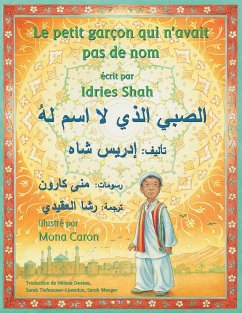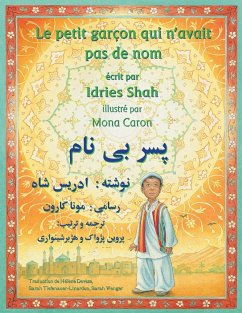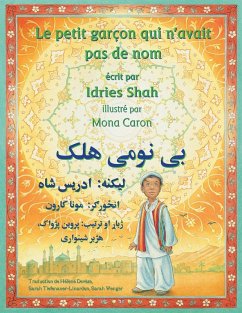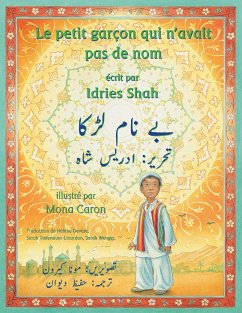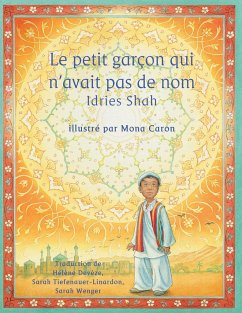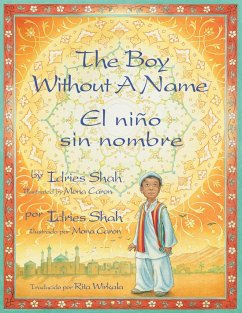
The Boy Without a Name -- Le petit garçon qui n'avait pas de nom
English-French Edition
Versandkostenfrei!
Versandfertig in 1-2 Wochen
14,99 €
inkl. MwSt.

PAYBACK Punkte
7 °P sammeln!
(Bilingual English-French edition / Edition bilingue anglais-français) On the day a boy is born, his parents are visited by a wise man who tells them, "This is a very, very important boy, and I'm going to give him something marvelous one day, but I will have to give him his name first. So please don't give him a name yet." So they named the boy Benaam, which means "nameless." The story tells how he seeks and eventually finds his own true name, and how he also gives away an old dream that he doesn't want - and gets a wonderful new dream. This is one of an illustrated series of Sufi teaching st...
(Bilingual English-French edition / Edition bilingue anglais-français) On the day a boy is born, his parents are visited by a wise man who tells them, "This is a very, very important boy, and I'm going to give him something marvelous one day, but I will have to give him his name first. So please don't give him a name yet." So they named the boy Benaam, which means "nameless." The story tells how he seeks and eventually finds his own true name, and how he also gives away an old dream that he doesn't want - and gets a wonderful new dream. This is one of an illustrated series of Sufi teaching stories from the Middle East and Central Asia that were collected and adapted for children by Idries Shah, and that have captivated hearts and minds for more than a thousand years. The stories are designed to help children learn to examine their assumptions and to think for themselves. Among the many insights The Boy Without a Name can provoke is the idea that it takes patience and resolve to achieve one's goals in life. Mona Caron's beautiful watercolor illustrations embellish this unusual and captivating story, presenting the wonder of this hidden world to both children and adults. Le jour où un garçon naît, ses parents reçoivent la visite d'un sage qui leur dit : C'est un garçon très, très important, et je vais lui donner quelque chose de merveilleux un jour, mais je devrai lui donner son nom en premier. Alors s'il vous plaît, ne lui donnez pas encore de nom. Ils ont donc nommé le garçon Benaam, ce qui signifie sans nom . L'histoire raconte comment il cherche et finit par trouver son vrai nom, et comment il donne également un vieux rêve qu'il ne veut pas - et obtient un nouveau rêve merveilleux. Cette histoire fait partie d'une série illustrée d'histoires-enseignement soufies du Moyen-Orient et d'Asie centrale qui ont été rassemblées et adaptées pour les enfants par Idries Shah, et qui ont captivé les c¿urs et les esprits pendant plus de mille ans. Ces histoires sont conçues pour aider les enfants à apprendre à examiner leurs suppositions et à penser par eux-mêmes. Parmi les nombreuses idées que Le petit garçon qui n'avait pas de nom peut provoquer, il y a la réalization qu'il faut de la patience et de la détermination pour atteindre ses objectifs dans la vie. Les belles illustrations à l'aquarelle de Mona Caron embellissent cette histoire insolite et captivante, présentant les merveilles de ce monde caché aux petits comme aux grands.



